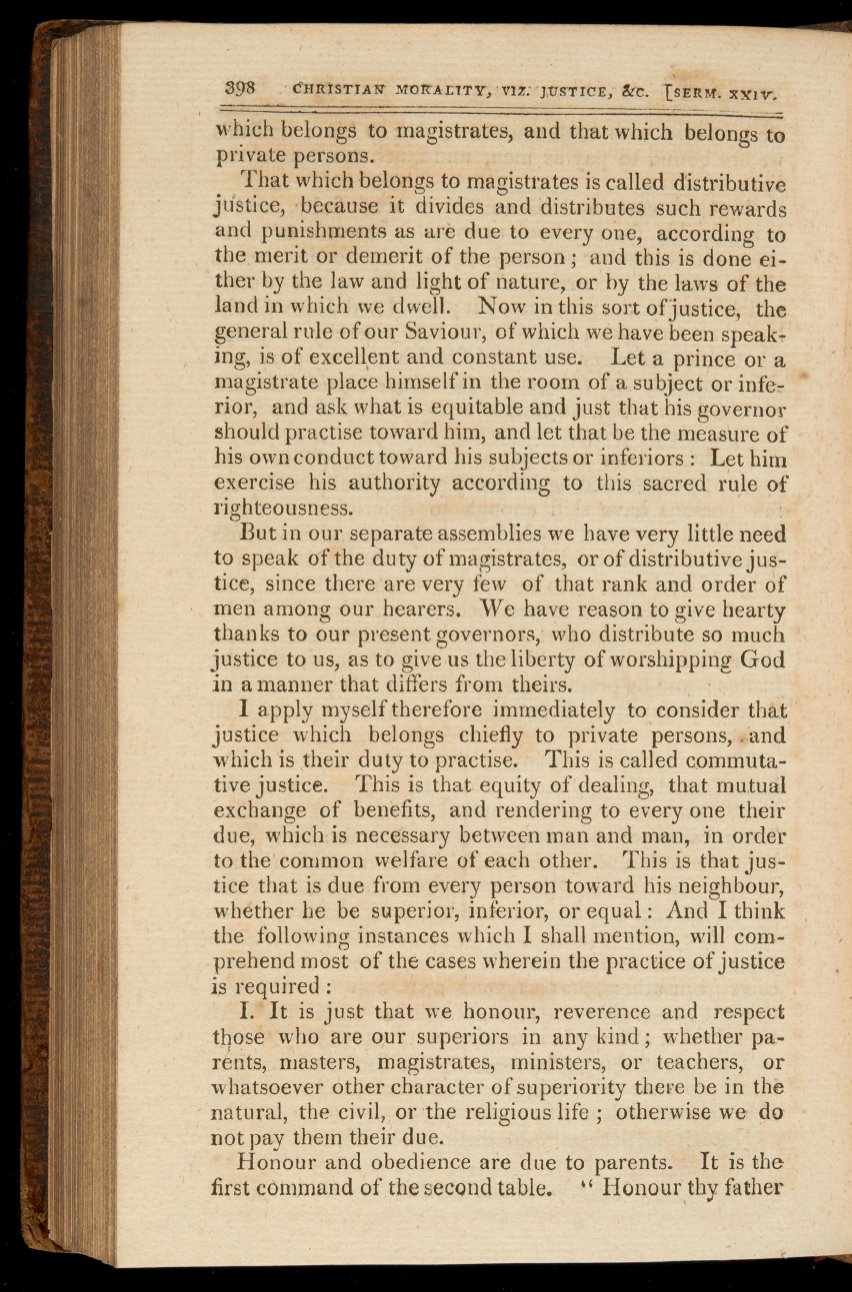

sgs
CYiRtSTIAN
KORALITY,'VIZ:
J05TICE
ñ'C.
jSERM.
%XIV
which belongs to magistrates,
and
that
which belongs to
private
persons.
That
which belongs to
magistrates
is
called distributive
justice,
because
it
divides
and distributes such
rewards
and
punishments
as
are due
to every one,
according to
the merit
or
demerit
of
the person
;
and
this
is
done ei-
ther
by the law
and light
of
nature,
or
by
the
laws
of
the
land
in which
we
dwell.
Now
in
this
sort
of justice, the
general
rule
ofour
Saviour,
of
which
we
have
been
speak-
ing,
is
of
excellent and
constant
use.
Let
a
prince
or a
magistrate
place himself
in
the room
of
a
subject or infe-
rior,
and
ask
what
is
equitable and
just that
his
governor
should practise toward
him,
and let
that
be
the measure
of
his
own
conduct
toward
his
subjects or inferiors
:
Let
him
exercise
his
authority
according to this sacred rule
of
righteousness.
But
in
our separate
assemblies
we
have very
little need
to speak
of
the duty
of
magistrates,
or
of
distributive
jus-
tice, since
there are
very
few
of
that
rank and
order
of
men among
our hearers.
We
have
reason to
give
hearty
thanks
to
our present governors,
who
distribute
so
much
justice
to
us,
as
to
give us
the
liberty
of
worshipping
God
in
a
manner that
differs
from theirs.
I
apply myself therefore immediately
to consider
that
justice
which belongs
chiefly
to
private
persons,
.
and
which
is
their
duty
to
practise. This
is
called
commuta-
tive
justice. This
is
that
equity
of
dealing,
that
mutual
exchange
of
benefits,
and rendering
to
every one
their
due,
which
is
necessary between man
and man, in
order
to the
common welfare
of
each other. This
is
that
jus-
tice
that
is
due
from every
person toward
his
neighbour,
whether
he
be superior, inferior, or
equal:
And
I
think
the
following
instances
which
I
shall
mention,
will
com-
prehend
most
of
the
cases
wherein the
practice
ofjustice
is
required
I.
It
is
just
that
we
honour, reverence and respect
those
who
are our
superiors
in
any
kind
;
whether pa-
rents,
masters, magistrates,
ministers,
or teachers,
or
whatsoever
other character
of
superiority there
be in
the
natural,
the
civil,
or
the religious
life
;
otherwise we do
not
pay them
their
due.
Honour
and
obedience
are due
to
parents.
It
is
the
first
command
of
the second table.
"
Honour
thy
father

















